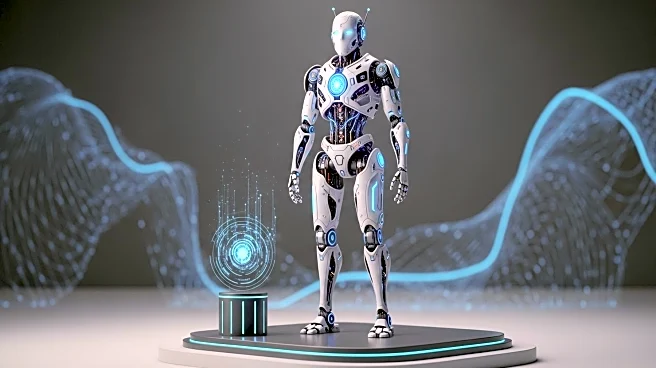What is the story about?
What's Happening?
A fringe political party in Japan, known as Path to Rebirth, has announced plans to appoint an AI chatbot penguin as its leader. This decision follows disappointing election results, prompting the party's founder, Shinji Ishimaru, to step down. Koki Okumura, a doctoral student specializing in AI research, won the leadership race and proposed the AI initiative, envisioning AI taking over decision-making processes within the party. The AI leader, represented by an avatar penguin, aims to create a more inclusive political environment by considering voices often overlooked by humans. Despite the innovative approach, Japanese electoral laws require candidates to be natural persons, meaning the AI cannot officially run for office. Experts have expressed skepticism about the feasibility of such a plan, citing cultural and democratic values that prioritize human leadership.
Why It's Important?
The proposal to use AI in political leadership highlights the growing interest in integrating technology into governance. While AI can enhance efficiency and data analysis, it raises ethical concerns about decision-making and accountability. The initiative reflects broader trends in Japan, where AI is increasingly used to address workforce challenges due to an aging population. However, the reliance on AI for political decisions may conflict with democratic principles that value diverse human perspectives. The experiment could influence future discussions on AI's role in politics, potentially impacting how societies balance technological advancements with traditional governance structures.
What's Next?
The party plans to establish a preparatory committee to explore the implementation of AI leadership. Observers will closely watch the development of this initiative, assessing its impact on political participation and public reception. The Japanese government may consider regulatory measures to address the ethical implications of AI in politics. Additionally, the experiment could inspire similar initiatives globally, prompting discussions on the integration of AI in political systems. Stakeholders, including political leaders and civil society groups, may engage in debates about the potential benefits and risks of AI-driven governance.
Beyond the Headlines
The use of AI in political leadership raises questions about the nature of democracy and representation. It challenges traditional notions of accountability and human interaction in governance. The initiative may spark discussions on the ethical boundaries of AI in decision-making, emphasizing the need for transparency and public trust. As AI technology advances, societies must navigate the complexities of integrating AI into political systems while preserving democratic values. The experiment could lead to long-term shifts in how political parties operate, potentially influencing global trends in governance and technology.

















